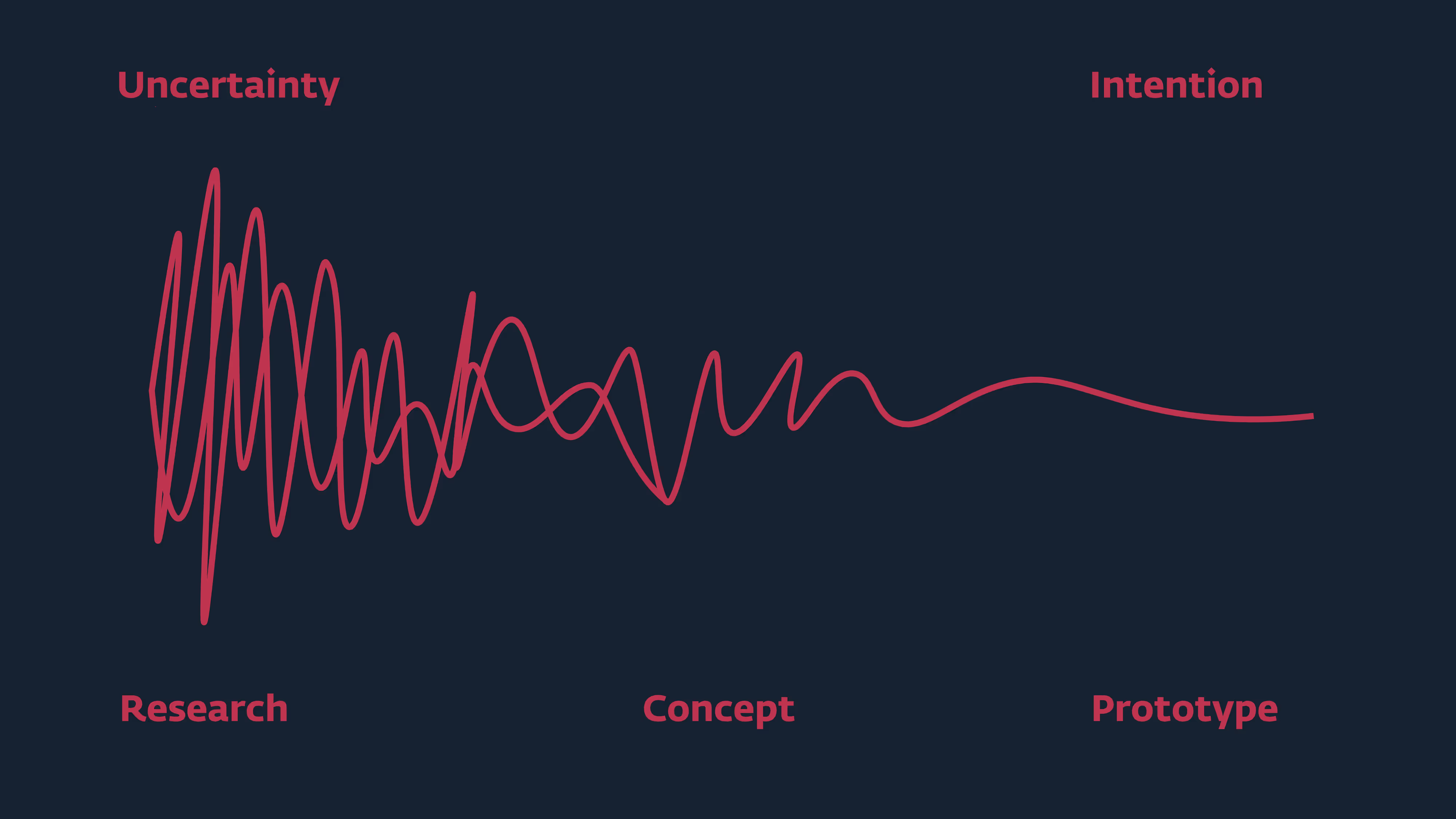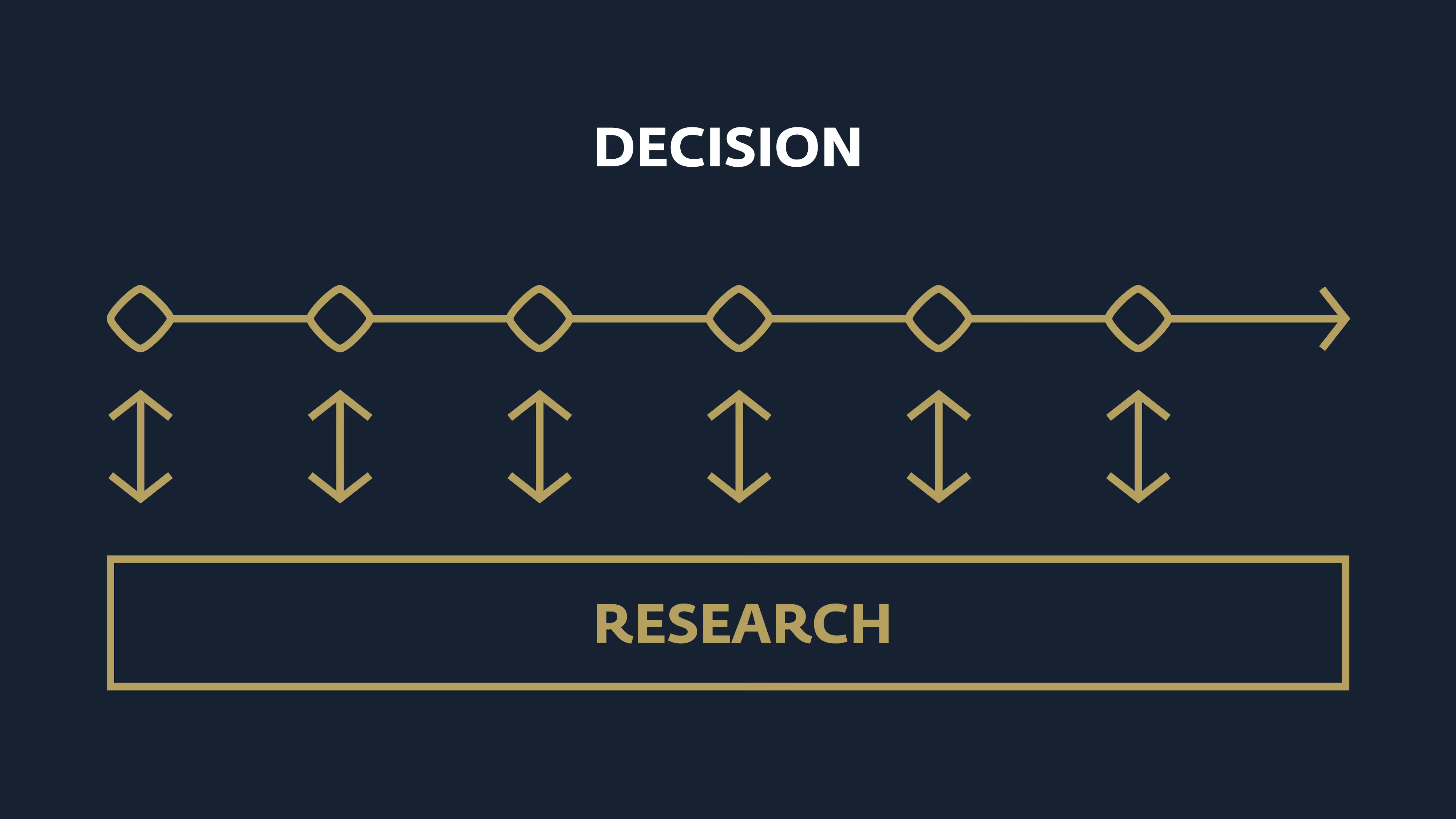We often encounter on projects the myth of the genius designer and the omniscient client. The ingenious designer will solve everything for you and create an amazing and working solution out of the clean air. He is creative and gifted.
We are only interested in our existing customers. <neřekl nikdy nikdo>
Don't be fooled the myth of the genius designer and the myth of the omniscient client. They don't exist! They never existed. And above all, we need to systematically verify our assumptions through user research.

User research is a standard part of the design process. How can you design something without understanding the people you are designing it for? When we talk about presentation sites, we are primarily interested in:
- Why do people buy the service -- what do they want to happen?
- How does the service fit into their lives?
- What information about the service do they have and who gave it to them?
- Where do they buy the service and why?
- What did their decision-making process look like?
- What were their concerns and barriers before buying?
- ... and many others.
The submitter of the project, that is, the client, has a lot of ideas about customers. But how did he come up with them? Does he interact with customers daily? That's great! We have a starting point to ask better questions. Doesn't he socialize? Who does?

User research always takes place both in the client's organization and outside among people and uses a variety of different methods. It always comes down to how much you need to be sure.
Is the client willing to bet $1 million for a new website without anyone from the implementation team talking to the people for whom we are creating the site? We have not experienced many of these yet, and yet similar bets are made today and daily. No one tells clients outright that they will invent the future website from the table, although this is a common reality of web projects.
We have a client who is willing to spend just a few million crowns because his website will be a giant and expensive work of art. But is this your case?
User research reduces the risk of failure
The number one, two and three selling argument is the prevention of project failure. If you've been doing sites for a while, you may have experienced this as well. You have been preparing a website with the client for a year. There will be a big and long-awaited launch. In the best case, nothing will happen. In the worst case, sales fall by tens of percent.
There is a big difference between strategies hope and believe OR verify facts and adapt. You don't control people out there. You don't change them. But you can create something that fits perfectly into their lives and it moves them forward.
User research allows you to prioritize
Knowing the people for whom you create your services allows Effectively prioritize the content and features of a new website, service or application, so you're not adding hundreds of hours of work to the contractor because of Mr. Director's opinion, but you're leaving less substantial functionality up to experimentation after startup.
If you want to launch a website as soon as possible, you need to know what makes sense to tackle first, and user research gives you the right answers.
User research brings competitive advantages
When you copy content from your competitors, you're better off like everyone else. When your website successfully solves the problem of your potential customers, your business has a chance of skyrocketing growth.
Your competition probably has a bunch of information on the web that originated in some internal consultation. So they are, for the most part, fantasies without priorities, order, and proper context.
Today is the moment to move forward. User research is not yet a standard, companies and project promoters do not do it automatically, and not many people can deliver it either. Thus, it can effectively give you a competitive advantage.
Strategic research affects the entire company
Together with the new training, we introduced the concept Strategic Research. While user research takes place primarily at the beginning of a design project, strategic research influences long-term decision-making in the firm. Therefore, it is necessary that it is the internal staff who have sufficient know-how about examining people and not depend only on the agency.

One training session is never enough to transform an organization forward, but it can be an effective starting point to gain insight into what works and start thinking about user research in a structured way. By February 2018 There will be no more dates.
